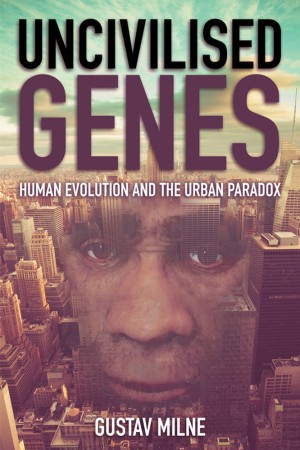'Uncivilised Genes' is reviewed in EDGE magazine

œLeading archaeologist Gustav Milne reckons it lies in our past. Humans evolved over three million years, living off the land, hunting and gathering, living simply. And then came 24-hour supermarkets, ondemand television and takeaways. The sofa now contributes to more deaths than the motor car. And with only 10% of job roles now requiring any kind of physical effort, our sedentary lifestyles are causing this generation and the next to fall into a trap of physical illiteracy.
In our quest for convenience, we™ve allowed our world to control us, and Milne argues that this has created an urban paradox that stints human evolution. It™s time to reconsider how we work, rest and play to better fit our biology. In short, we need to get back to being cavemen. We need to uncivilise our genes.
Lifestyle choices are shaped by complex cultural, economic and societal influences, so knowing where to begin is a tough call. In this fascinating book, we™re taken through a beautifully researched and easy-to-read analysis of the physiological, metabolic and psychological factors that can have a impact on our personal health and wellbeing. Diet, exercise and social networks are all in there, but the author digs deeper, into the architecture and planning of the places in which we live and work, teasing out the need for greener cities and buildings designed with evolutionary-concordant principles.
While much of what Milne writes is common sense, it™s not common practice. Adopting the changes may take time, but through simple steps “ eating and living like huntergatherers, getting tribal and roaming free “ we can learn lessons from our prehistoric past and build a healthier urban future. Get it right and we create our own Garden of Eden.
- Professor Andrew Sharman is an international strategy, culture and leadership consultant, and chair of the Institute of Leadership & Management.
Discover Uncivilised Genes by Gustav Milne and purchase your copy here now!
